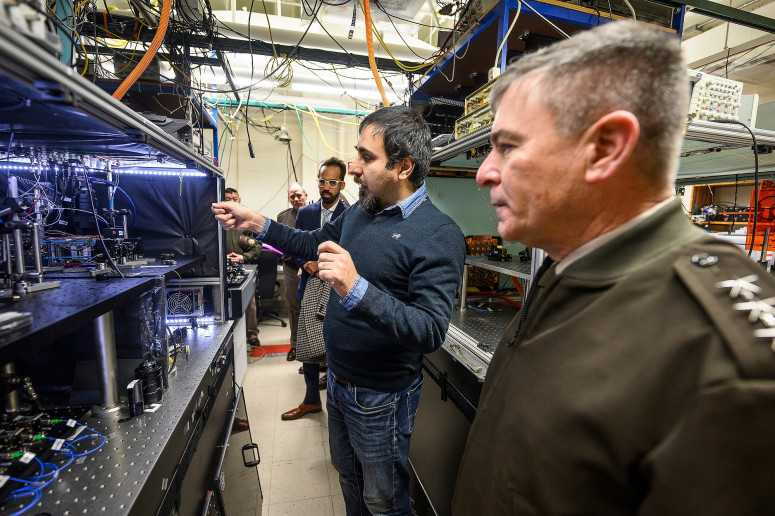This post is modified from the original news story from Northwestern University
A large multi-institutional collaboration— led by Northwestern University and including UW–Madison physics professors Keith Bechtol, Kyle Cranmer, and Moritz Münchmeyer — has received a $20 million grant to develop and apply new artificial intelligence (AI) tools to astrophysics research and deep space exploration.
Jointly funded by the National Science Foundation (NSF) and the Simons Foundation, the highly competitive grant will establish the NSF-Simons AI Institute for the Sky (SkAI, pronounced “sky”). SkAI is one of two National AI Research Institutes in Astronomy announced today. Northwestern astrophysicist Vicky Kalogera is principal investigator of the grant and will serve as the director of SkAI. Northwestern AI expert Aggelos Katsaggelos is a co-principal investigator of the grant.
The new institute will unite multidisciplinary researchers to develop innovative, trustworthy AI tools for astronomy, which will be used to pursue breakthrough discoveries by analyzing large astronomy datasets, transform physics-based simulations and more. With unprecedentedly large sky surveys poised to launch, including from the Vera C. Rubin Observatory in Chile, astronomers will require smarter, more efficient tools to accelerate the mining and interpretation of increasingly large datasets. SkAI will fulfill a crucial role in developing and refining these tools.
Read the full NU press release
Learn more about SkAI
